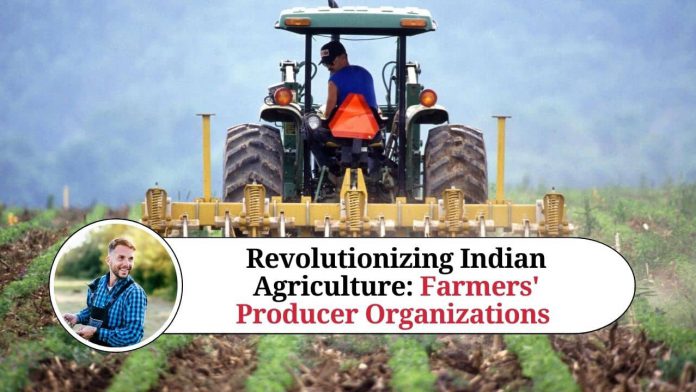Introduction
Agriculture is a significant contributor to the Indian economy, accounting for 18% of the GDP. However, despite its importance, the sector faces numerous challenges, including inadequate infrastructure, lack of market access, and poor remuneration for farmers. Farmers’ Produce Organizations (FPOs) have emerged as a promising solution to address some of these challenges. In this blog, we will discuss FPOs, their benefits, and the challenges they face.
What is an FPO?
An FPO is a group of farmers who come together to form an organization that collectively undertakes agricultural production, procurement, grading, pooling, and marketing of their produce. FPOs are registered under the Companies Act, Cooperative Societies Act, or other relevant acts, and they function as independent entities with a governing board elected by their members. FPOs aim to provide farmers with a platform to improve their bargaining power and negotiate better prices for their produce.
Benefits of FPOs
FPOs offer several benefits to farmers, including:
Increased bargaining power: By pooling their resources and produce, farmers in an FPO can negotiate better prices with buyers.
Access to credit: FPOs can access credit and loans from financial institutions that individual farmers may not be able to access.
Improved market access: FPOs provide farmers with access to new markets, both domestic and international, that they may not have been able to reach individually.
Technical and managerial support: FPOs provide farmers with technical and managerial support to improve their production practices, crop quality, and post-harvest handling.
Challenges facing FPOs
Despite the numerous benefits that FPOs offer, they face several challenges, including:
Lack of awareness: Many farmers are not aware of the benefits of FPOs or how to form and manage them.
Limited access to resources: Many FPOs lack the resources to invest in infrastructure, technology, and marketing, which limits their ability to scale and compete.
Poor governance and management: FPOs may suffer from poor governance and management, leading to corruption, mismanagement of funds, and poor decision-making.
Limited participation by women and marginalized communities: Women and marginalized communities often face barriers to participation in FPOs due to social norms, lack of education, and limited access to resources.
FPOs and government support
The government of India has recognized the potential of FPOs in transforming the agriculture sector and has launched several initiatives to promote their formation and growth. For example, the Small Farmers’ Agribusiness Consortium (SFAC) is a government agency that provides financial and technical support to FPOs. The government has also launched the Agriculture Infrastructure Fund to provide financing for FPOs to invest in post-harvest infrastructure such as cold storage, warehouses, and processing units. Additionally, the government has launched the e-NAM platform, a digital marketplace for agricultural commodities, to provide FPOs with access to new markets and buyers.
Success stories of FPOs
Several FPOs in India have achieved significant success in improving the lives of farmers. For example, the Sahyadri Farmers Producer Company in Maharashtra, formed in 2011, has more than 8,000 farmer members and markets their produce under the brand name ‘Sahyadri Farms.’ The FPO has invested in post-harvest infrastructure such as packhouses, grading facilities, and cold storage units, enabling them to supply high-quality produce to domestic and international markets. Another example is the Akshayakalpa Farmers Producer Company in Karnataka, which is known for its organic milk and dairy products. The FPO has more than 4,000 farmer members and has invested in a state-of-the-art dairy processing unit, enabling them to provide high-quality, organic milk to consumers.
Role of technology in FPOs
Technology can play a crucial role in the success of FPOs. For example, FPOs can use mobile apps to provide farmers with information on market prices, weather updates, and best practices for crop cultivation. This information can help farmers make informed decisions on when to sell their produce and how to improve their crop yields. FPOs can also use digital tools to manage their operations, such as inventory management, financial accounting, and logistics management. Additionally, FPOs can use e-commerce platforms to sell their produce directly to consumers, bypassing middlemen and increasing their profitability.
Collaboration with private sector
FPOs can benefit from collaboration with the private sector, particularly in areas such as technology, marketing, and financing. Private companies can provide FPOs with access to new technologies, such as precision agriculture tools and digital marketing platforms, that can help them improve their productivity and profitability. Private companies can also provide financing to FPOs, enabling them to invest in infrastructure and expand their operations. In return, private companies can benefit from partnerships with FPOs by gaining access to high-quality produce and expanding their supply chains.
Conclusion
FPOs are a promising solution to address the challenges faced by farmers in India. By pooling their resources and negotiating collectively, farmers can access new markets, improve their bargaining power, and access credit and technical support. However, to ensure the success of FPOs, it is essential to address the challenges they face, such as limited resources, poor governance, and limited participation by women and marginalized communities. With the right support and investment, FPOs can play a vital role in transforming India’s agriculture sector and improving the lives of farmers.
Read Other Useful Blogs:
Frequently Asked Questions (FAQ’s)
Q1.)
What is an FPO?
An FPO stands for Farmers’ Producer Organization, which is a group of farmers who come together to improve their bargaining power and access to markets.
How does an FPO benefit farmers?
An FPO benefits farmers by improving their access to credit, markets, and technical support. It also enables them to obtain higher prices for their produce by reducing dependence on middlemen.
How is an FPO different from a cooperative?
While both FPOs and cooperatives are formed by farmers to improve their bargaining power, FPOs are more flexible in terms of their governance structure and decision-making processes.
How can a farmer become a member of an FPO?
Farmers can become members of an FPO by paying a membership fee and agreeing to follow the FPO’s rules and regulations.
What types of activities can an FPO undertake?
An FPO can undertake a range of activities, such as production, procurement, processing, marketing, and value addition.
Can FPOs access government subsidies and support?
Yes, FPOs can access government subsidies and support, such as the Small Farmers’ Agribusiness Consortium (SFAC) and the Agriculture Infrastructure Fund.
How can FPOs access credit?
FPOs can access credit from banks and financial institutions by submitting a detailed project report and obtaining necessary approvals.
Can FPOs use technology to improve their operations?
Yes, FPOs can use technology to improve their operations, such as mobile apps for farmers, digital tools for managing their operations, and e-commerce platforms for selling their produce.
How can FPOs ensure good governance and management?
FPOs can ensure good governance and management by having a transparent decision-making process, strong financial management systems, and effective monitoring and evaluation mechanisms.
What are some successful FPOs in India?
Some successful FPOs in India include the Sahyadri Farmers Producer Company in Maharashtra, the Akshayakalpa Farmers Producer Company in Karnataka, and the Swayam Shikshan Prayog in Maharashtra.




















